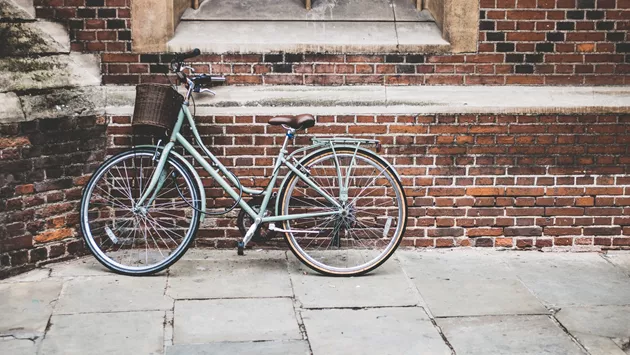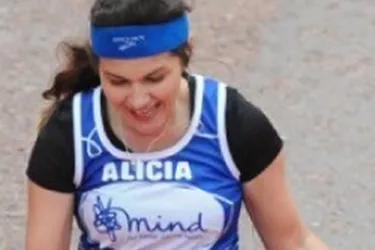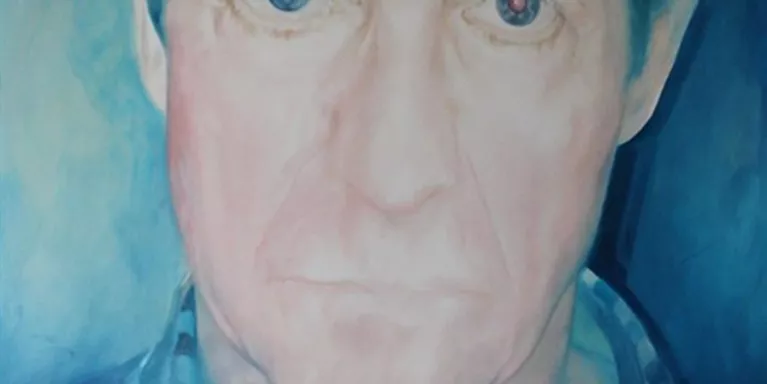R.E.D January transformed the way I manage my depression
Through running and exercise, Karl turned a difficult time of the year into a life-changing experience.
Karl (@inadarkwood) is a 21-year-old mental health campaigner, public speaker and writer. He's been featured in the Guardian and writes regularly for Huffington Post.
As a depressed teenager, I was often told to run. I thought running, like showering or speaking, was a chore.
I remember thinking at the time that telling an acutely depressed teenager to run was like telling someone with a broken leg to do the hopscotch.
“I remember thinking at the time that telling an acutely depressed teenager to run was like telling someone with a broken leg to do the hopscotch.”
It was only years later after I’d been detained under the Mental Health Act in my first year at university, that I started exercising again. A great friend suggested that we go to the local university gym, and I reluctantly got myself there.
Once I’d done my first run, I immediately brought a gym membership. Running (and exercise in general) made me feel free. It seemed to give me energy that depression would otherwise drain.
This was in October 2016, and the following January, I saw Mind advertise an event called R.E.D (Run Every Day) January. January and February had become odd, stirring months for me, as it was during this time that I was detained under the Mental Health Act. Naturally, the time stirs up all kinds of emotions that can often be stifling for me.
“I thought R.E.D would be a nice challenge, but I didn’t expect to meet great people through the event.”
The R.E.D group were honest, and they accepted people who all did variants of the challenge. Some were running long distances, and others ran to the shop down the street and back. Some had been running for years, and many, like me, were running regularly for the first time in years, if not for the first time.
In a season with so much history for me, the running, alongside my other coping strategies, kept me firmly grounded in the present, grounded in the concrete beneath my feet, and in the winter cold that braced me as I plodded about.
Little did I know at the time that R.E.D kick-started what would be a great year for me. I’ve done loads of media work with mental health charities, and I also made a documentary for Time to Talk day that’s grown into a series of podcasts on mental health.
Next year I’m running the Brighton Marathon for Mind. Without R.E.D, I doubt I would have signed up.
“Running and exercising’s effect on me, though, has been more profound than just kick-starting a good year.”
Exercise and running have allowed me a pressure-free space to evaluate my depression and my life more widely.
When I was detained, I asked myself all the time; “How did I get here, as a 19-year-old?”, “What can I do to prevent this happening again?”, “How do I navigate my life with a chronic, serious illness that I hadn’t planned on?”
These are questions that can’t be answered overnight, but having a space to reflect on what their answers might be has been enormously beneficial for me.
“If depression is a high-pressure tank, running is the sudden switch of the pressure-release valve.”
When depression and my desk at work both seem too oppressive, running, cycling and exercise are escapes, releases from the day-to-day pressure of life. However, this isn’t to say that any of these things have ‘cured’ my depression. Despite all that, depressive episodes still come and go.
In my case, it’s a chronic condition that ebbs and flows in and out of my life, like rain. For me, a combination of things has kept depression at arm’s length, a mixture of medication, exercise, talking (lots of it), and most of all, writing.
Due to my media work, I’ve often been asked by people with mental health problems or their families about what may help them or their loved ones.
Sadly I can’t say that what works for me will work for someone else. The only advice I can give is to try everything healthy – it’s largely a long road to recovery, and much trial and error are involved.
“While these methods work for me, others may work for you.”
For instance, I draw comfort from people in history who have suffered as I have with mental health problems. I take great comfort and an odd pride in the fact that most of the Apollo astronauts experienced mental health problems, which some of our greatest minds, poets, novelists and physicists have too.
However, what comforts you may be completely different. Just as each case of depression is wholly its own, so too are the methods of keeping it at bay. I wish I had more answers that could help people, but I only know what has helped me recover from and subsequently manage my own depression.
I do what I always do now when depression barges into my life. I talk, I listen, I don’t shut myself away, and most importantly, I reach out – to my friends, family and doctors and more people than I could list here. Just the other day, I was feeling depression come over me and stifle me like a lead blanket; then I put on my running shoes, and put one foot in front of the other, and began to run.

Get involved
There are lots of different ways that you can support us. We're a charity and we couldn't continue our work without your help.
Share your story with others
Blogs and stories can show that people with mental health problems are cared about, understood and listened to. We can use it to challenge the status quo and change attitudes.

















